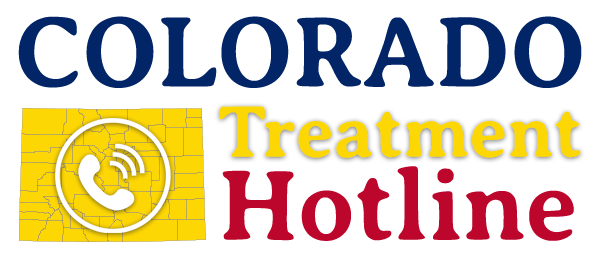Denver County Colorado Addiction Treatment Hotline
Denver County Colorado Substance Abuse Treatment Hotline
Substance Abuse Statistics Denver County Colorado
Denver County, Colorado, faces significant challenges related to substance abuse, with the state ranking 5th overall in weighted metrics for substance use disorders[1]. The state’s drug overdose death rates are among the highest in the nation, with twelve counties, including Denver, reporting rates exceeding 20 per 100,000 residents[2]. This data highlights the prevalence of substance abuse issues within the state and the urgent need for comprehensive intervention and support services. – Colorado ranks 5th overall in weighted metrics for substance use disorders. – Ranked 9th in the U.S. for high substance abuse rates and 1st for unmet treatment needs. – Drug overdose death rates in Denver and other counties exceed 20 per 100,000 residents.
Illicit drugs are frequently abused in Denver County, with substances like alcohol, marijuana, and opioids being commonly misused[3]. The Colorado Department of Human Services Alcohol and Drug Abuse Division (ADAD) reports a concerning increase in substance misuse both within the state and nationwide[4]. Additionally, a variety of substances, including cocaine, heroin, marijuana, MDMA, and methamphetamine, pose significant threats to the city of Denver[5].
These statistics underscore the complex and pervasive nature of substance abuse issues in the region, necessitating targeted prevention and intervention efforts. – Commonly abused substances in Denver include alcohol, marijuana, opioids, cocaine, heroin, MDMA, and methamphetamine. – Increase in substance misuse reported by the Colorado Department of Human Services Alcohol and Drug Abuse Division. – Various substances like cocaine, heroin, marijuana, MDMA, and methamphetamine pose significant threats in Denver.
Demographic trends in substance abuse reveal that the percentage of Colorado residents reporting illicit drug abuse is higher than the national average[4]. Reports indicate that drug abuse is fairly common in Colorado, emphasizing the need for tailored prevention and treatment strategies[2]. Furthermore, the Colorado Department of Public Health and Environment provides estimates for substance use disorder, major depressive episodes, illicit drug use, marijuana use, cigarette use, and binge alcohol use within the state[6]. Understanding these demographic trends is crucial for developing targeted interventions that address the specific needs of diverse populations affected by substance abuse in Denver County. – Percentage of Colorado residents reporting illicit drug abuse is above the national average. – Drug abuse is prevalent in Colorado, necessitating tailored prevention and treatment strategies. – Colorado Department of Public Health and Environment provides estimates for various substance use disorders and mental health issues in the state.
References
1. Colorado ranks 5th for drug abuse in the United States. from kdvr.com
2. Colorado County Drug Overdose Death Rate. from www.coloradohealthinstitute.org
3. Drugs and Crime City Profile: Denver, Colorado. from www.justice.gov/archive/ndic/pubs7/7691/7961t.htm
4. Overview – Colorado Drug Threat Assessment. from www.justice.gov/archive/ndic/pubs4/4300/overview.htm
5. Drugs and Crime City Profile: Denver, Colorado. from www.justice.gov/archive/ndic/pubs7/7691/index.htm
6. Denver-Aurora-Broomfield, CO | CBHSQ Data. from www.samhsa.gov/data/report/denver-aurora-broomfield-co

Denver County, CO Substance Abuse Treatment Resources

Denver County Colorado Government Substance Misuse Treatment Programs
Denver County Colorado Government Substance Misuse Treatment Programs. Substance misuse and overdose are an increasing community health concern across the city of Denver. The DDPHE Community & Behavioral Health division is the coordinating agency addressing opioid and other substance misuse in Denver. The division utilizes a collective impact model to engage stakeholders across disciplines to achieve a common goal. For Information about the installation of sharps disposal kiosks and locations, select Syringe & Medication Collection below.

Caring for Denver Colorado Substance Misuse Support
Caring for Denver Colorado Substance Misuse Support. We’re on a Mission to address Denver’s mental health and substance misuse needs by growing community-informed solutions, dismantling stigma, and turning the community’s desire to help into action. Founded and funded by and for Denver, we turn our community’s desire to help into action to address Denver’s mental health and substance misuse needs. Without you there is no us. Since 2019, we’ve funded organizations that serve every City Council District and neighborhood in Denver to transform mental health and substance misuse care.
Denver County Colorado Narcotics Anonymous Denver Mile High Area
Denver County Colorado Narcotics Anonymous Denver Mile High Area. Denver County, Colorado, is associated with a branch of Narcotics Anonymous (NA) affiliated with the Denver Mile High Area. Serving as a beacon of support and recovery, NA offers a safe space for individuals grappling with addiction to find solace, camaraderie, and empowerment. Through regular meetings, members share their experiences, strength, and hope, guided by the principles of honesty, openness, and willingness. Whether you’re seeking guidance, companionship, or simply a non-judgmental environment, NA in Denver County CO welcomes you with open arms on your journey towards lasting sobriety and renewal.
Denver County Colorado Alcoholics Anonymous Area 10 District 9
Denver County Colorado Alcoholics Anonymous Area 10. In Denver County, Colorado, Denver Area Central Committee of Alcoholics Anonymous (AA) plays a pivotal role in supporting individuals on their journey to sobriety. Area 10 offers a welcoming and confidential environment where individuals grappling with alcohol addiction can find understanding and encouragement. Through regular meetings and fellowship, AA members in Denver, CO share their experiences, strength, and hope to help one another achieve and maintain sobriety. With a foundation built on the principles of honesty, humility, and mutual support, AA serves as a vital resource for those seeking freedom from the grip of alcoholism in Denver, CO.

